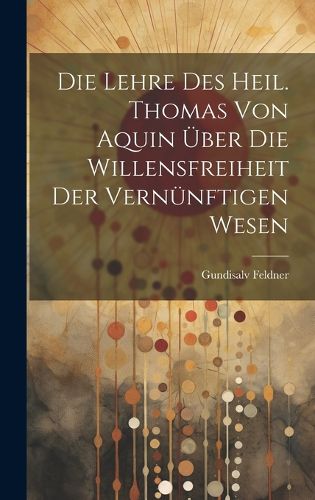Readings Newsletter
Become a Readings Member to make your shopping experience even easier.
Sign in or sign up for free!
You’re not far away from qualifying for FREE standard shipping within Australia
You’ve qualified for FREE standard shipping within Australia
The cart is loading…






Gundisalv Feldner's work on the teachings of Thomas Aquinas regarding free will and the rational nature of human beings is a classic of medieval philosophy. This detailed and thorough analysis of Aquinas's views is still influential today, and provides a valuable resource for scholars and students of philosophy and theology. Those interested in the history of ideas and religious thought will find this work a challenging yet rewarding read.
This work has been selected by scholars as being culturally important, and is part of the knowledge base of civilization as we know it.
This work is in the "public domain in the United States of America, and possibly other nations. Within the United States, you may freely copy and distribute this work, as no entity (individual or corporate) has a copyright on the body of the work.
Scholars believe, and we concur, that this work is important enough to be preserved, reproduced, and made generally available to the public. We appreciate your support of the preservation process, and thank you for being an important part of keeping this knowledge alive and relevant.
$9.00 standard shipping within Australia
FREE standard shipping within Australia for orders over $100.00
Express & International shipping calculated at checkout
Gundisalv Feldner's work on the teachings of Thomas Aquinas regarding free will and the rational nature of human beings is a classic of medieval philosophy. This detailed and thorough analysis of Aquinas's views is still influential today, and provides a valuable resource for scholars and students of philosophy and theology. Those interested in the history of ideas and religious thought will find this work a challenging yet rewarding read.
This work has been selected by scholars as being culturally important, and is part of the knowledge base of civilization as we know it.
This work is in the "public domain in the United States of America, and possibly other nations. Within the United States, you may freely copy and distribute this work, as no entity (individual or corporate) has a copyright on the body of the work.
Scholars believe, and we concur, that this work is important enough to be preserved, reproduced, and made generally available to the public. We appreciate your support of the preservation process, and thank you for being an important part of keeping this knowledge alive and relevant.